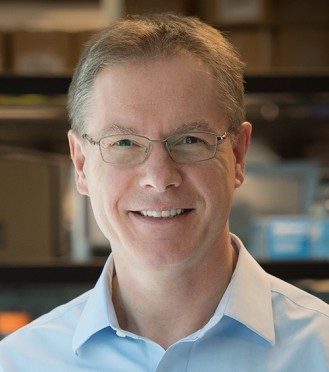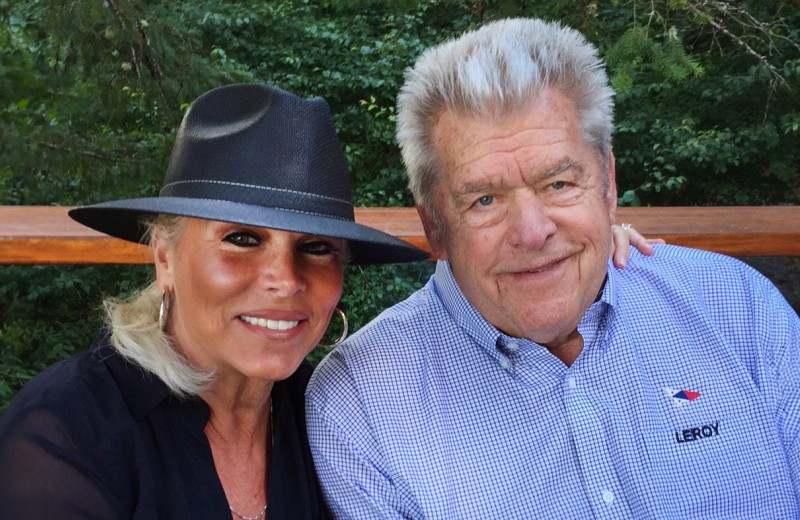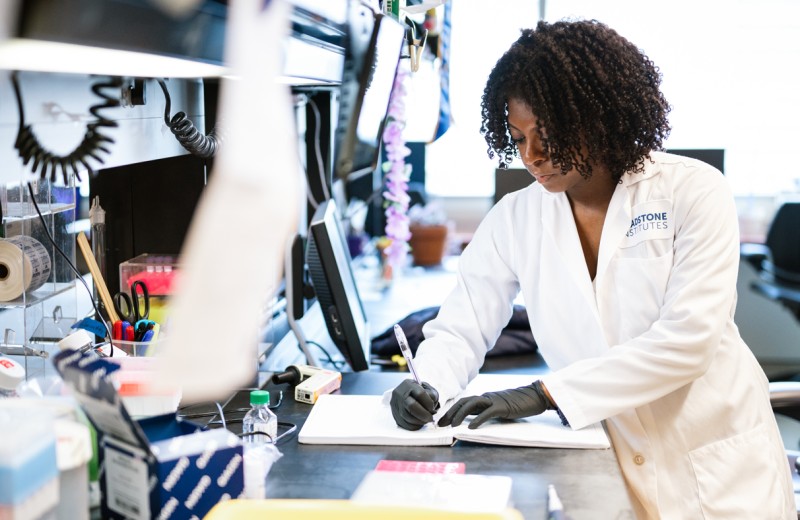Gladstone NOW: The Campaign Join Us on the Journey✕
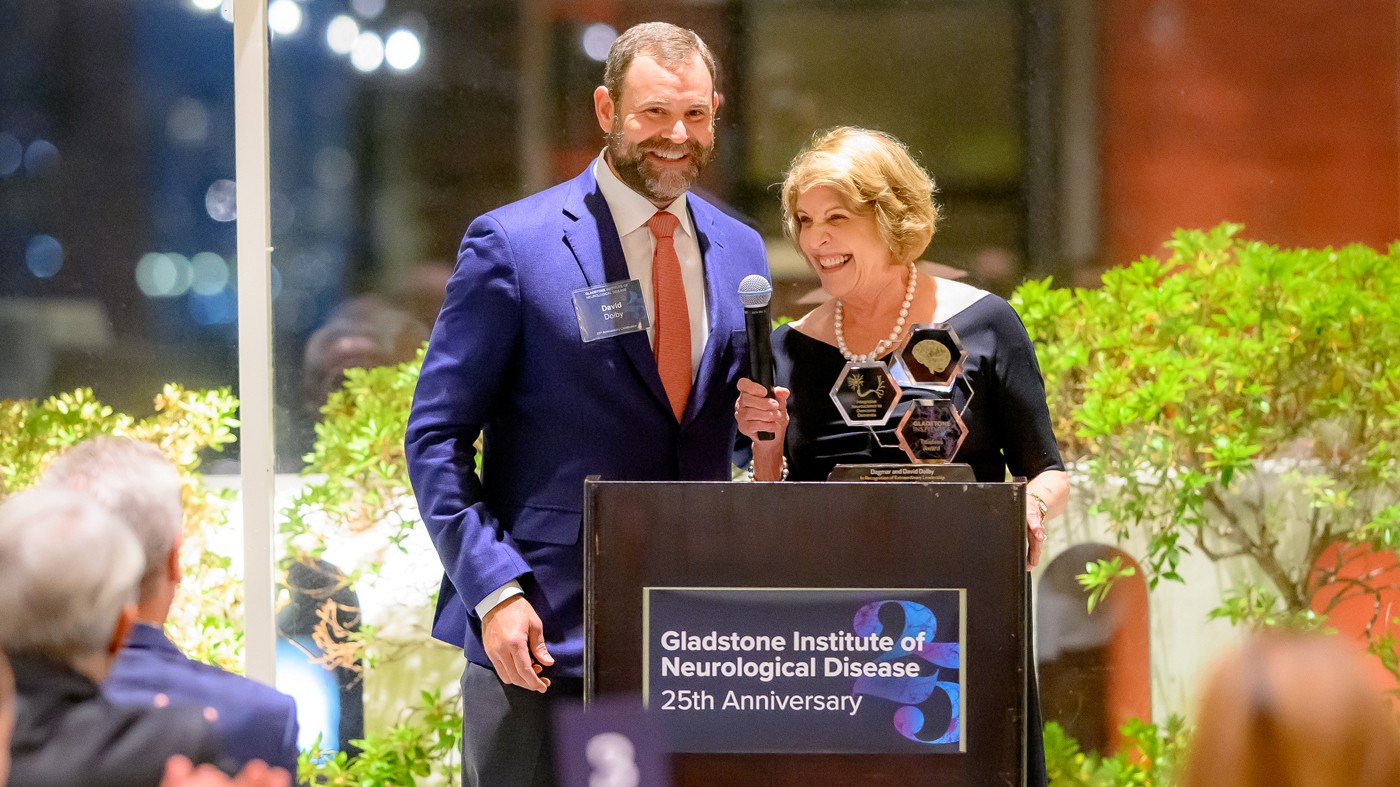
David (left) and Dagmar (right) Dolby work to improve outcomes for people with Alzheimer’s disease.
Frustration became the dominant note in Dagmar Dolby’s life when Ray, her husband of 43 years, was diagnosed with Alzheimer’s disease in 2009. Frustration with the condition’s stealthy erosion of his capabilities. Frustration with the paucity of scientific knowledge and lack of effective medical treatments. Frustration with pharmaceutical companies who were abandoning clinical trials of potential new drugs, deeming continued investment in them too risky.
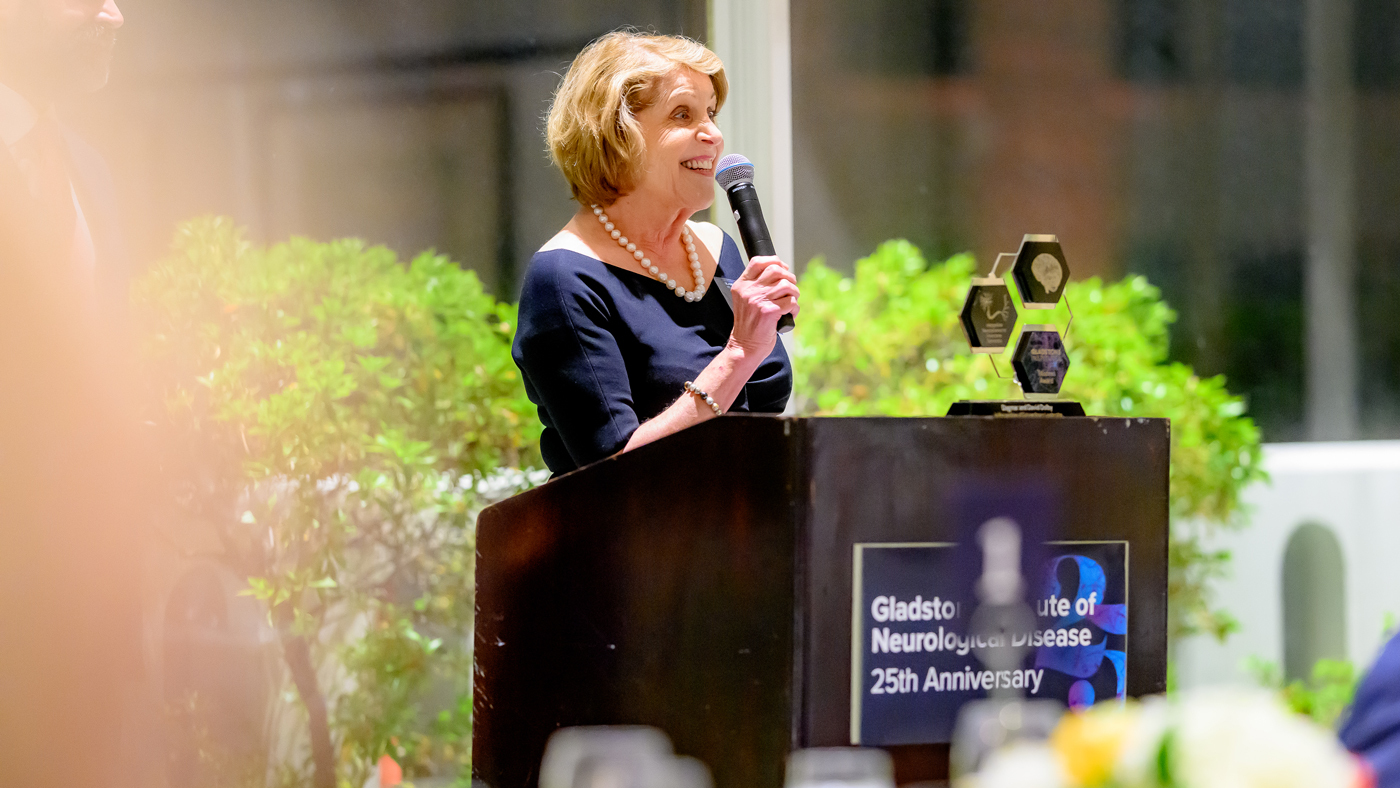
Dagmar Dolby, seen here speaking at a reception for the 25th anniversary of the Gladstone Institute of Neurological Disease, is a longtime supporter of Alzheimer's disease research at Gladstone.
Her search for answers took her around the world, including a conference in France and specialists in Germany, her native country. But ultimately, Dagmar and one of her sons, David, found their go-to resources close to home: at Gladstone Institutes. Specifically, they met Lennart Mucke, MD, director of the Gladstone Institute of Neurological Disease.
“Lennart was the first scientist in the Alzheimer’s field I met,” recalls Dagmar. “He gave a fabulous lecture in downtown San Francisco for lay people who really didn’t know anything about the disease—he has a great way of explaining it. Moreover, I discovered that he was German, which was fun to find out.”
For most of his career, Mucke has focused on Alzheimer’s disease, both treating patients in the clinic and working to unravel its mysteries in his lab. Highly regarded for his own pioneering research, Mucke leads a team of investigators at Gladstone who possess complementary areas of expertise. They’re tackling major unresolved problems in neuroscience in creative and, some might say, unorthodox ways. And they’re transforming the field in the process.
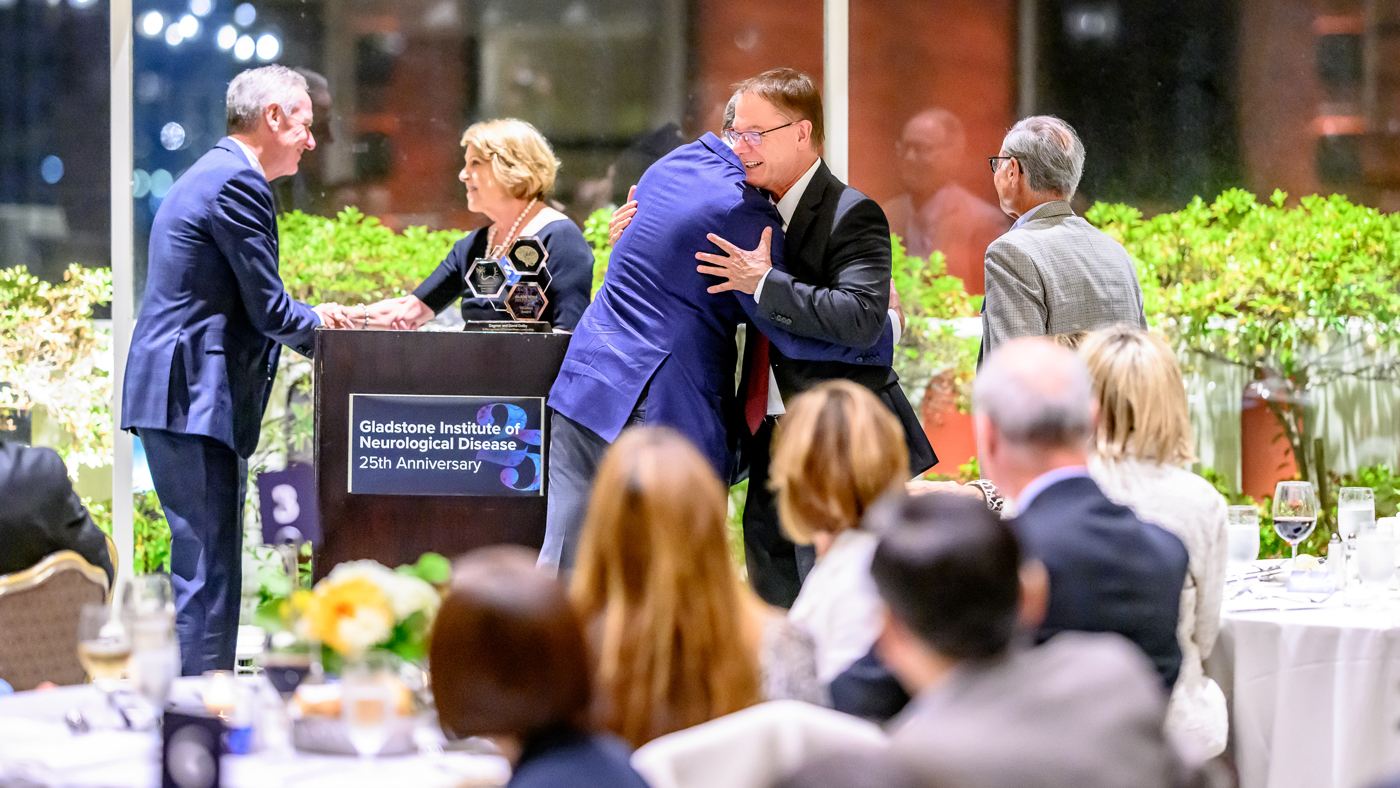
David and Dagmar Dolby received this year's Gladstone Trustees Award. Left to right: Gladstone Trustee Nick Simon, Dagmar Dolby, David Dolby, Lennart Mucke, and Gladstone Trustee Andy Garb.
That bold approach appealed to the Dolby family, who has been equally trailblazing in other areas. To effectively confront Alzheimer’s disease, they realized, they needed to support basic science that was breaking new ground.
“We felt the most appropriate way to honor my father was to evaluate where the real innovation was taking place and who was taking risks, who was charting new territory,” says David Dolby. “And it soon became clear that the most obvious place was right here at Gladstone Institutes. They’re really taking a multi-pronged approach to Alzheimer’s disease and other neurodegenerative diseases. Knowing this is a complex topic, they’re building a very diverse portfolio of research that complements the field at large but also explores new frontiers.”
“We felt the most appropriate way to honor my father was to evaluate where the real innovation was taking place and who was taking risks, who was charting new territory.”
The off-the-beaten-path ideas pursued by Gladstone’s team have led to many breakthroughs in the understanding of neurological diseases, including how factors such as apolipoprotein E4, tau, and amyloid proteins contribute to Alzheimer’s and the role of brain inflammation in this and other neurological conditions. They have successfully translated their discoveries into novel therapeutic strategies that have culminated in several clinical trials.
The Dolby family shares that same drive to innovate. In 1965, engineer and inventor Ray Dolby founded Dolby Laboratories, where he pioneered the noise reduction and surround sound technology widely used in movie production today. The company earned him a star on the Hollywood Walk of Fame (among many other honors) and made him a billionaire.
Ray died in 2013, but his family continues to embody his adventuresome spirit—working closely with Gladstone researchers to ask bold questions; supporting high-risk, high-reward science; and pushing the field of neurological disease research in new directions.
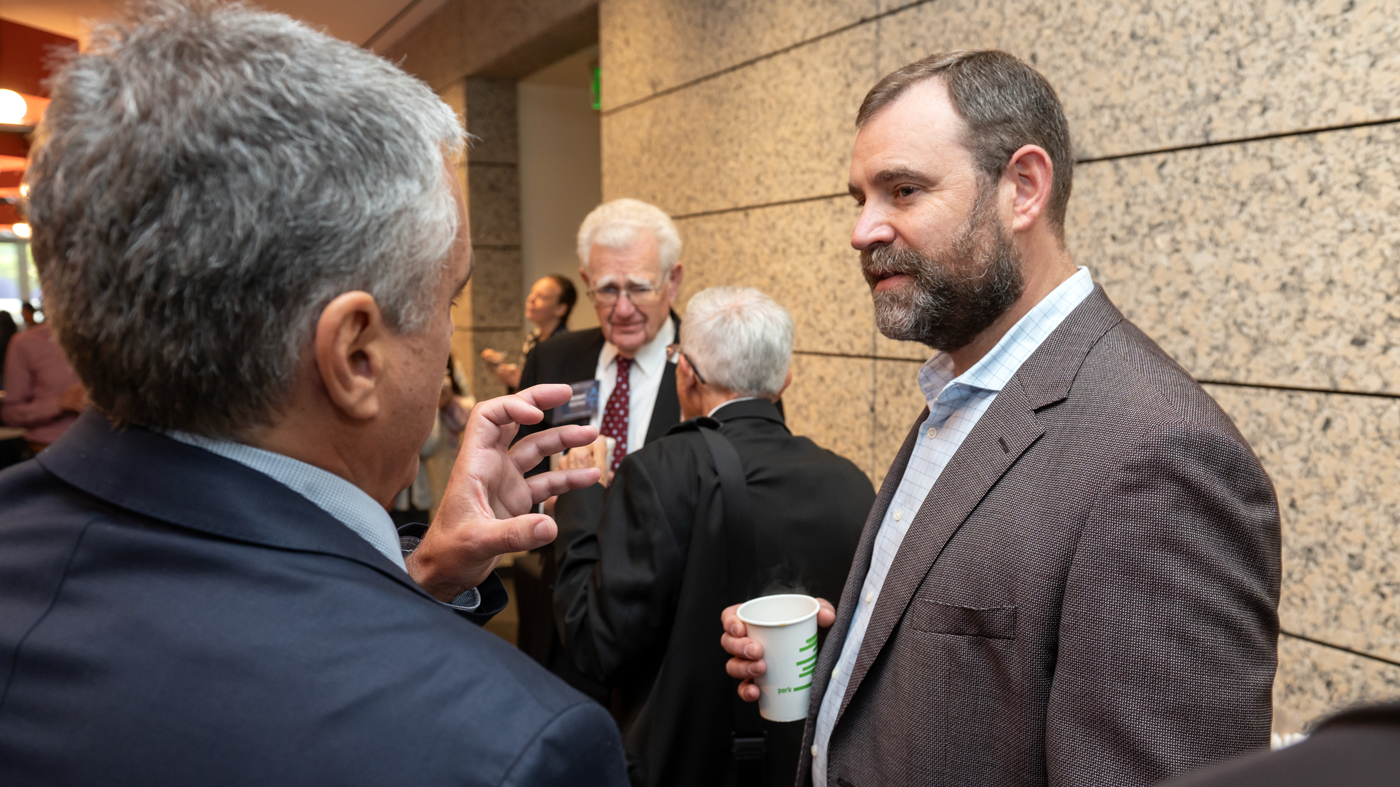
David Dolby—speaking here with Gladstone Investigator Jorge Palop—attended the symposium “Disease-Focused Neuroscience: From Discovery to Translation” celebrating 25 years of neurological disease research at Gladstone.
“I feel very privileged to have the opportunity to support scientists and their passions and to help identify critical unmet needs across this whole space,” says David. “Lennart is so generous with his time, with his concern for families and people affected by the disease, and his broader view across the whole industry. So many times, we’ve just asked, ‘Where is the next set of questions leading us?’ or ‘What would you do if you had more resources?’ And we were always excited about the answers.”
Dagmar signed The Giving Pledge in 2017, promising to donate the majority of her family’s wealth to charitable causes. Among her priorities is the support of research into Alzheimer’s disease and mood disorders. At Gladstone, her family also helped establish Cure Network Dolby Acceleration Partners to expedite the translation of relevant scientific discoveries from Gladstone into better therapeutics for Alzheimer’s disease.
To honor the Dolbys’ ongoing commitment to supporting high-risk, high-reward scientific research at Gladstone, the organization bestowed on them the Gladstone Trustees Award at a ceremony in September.
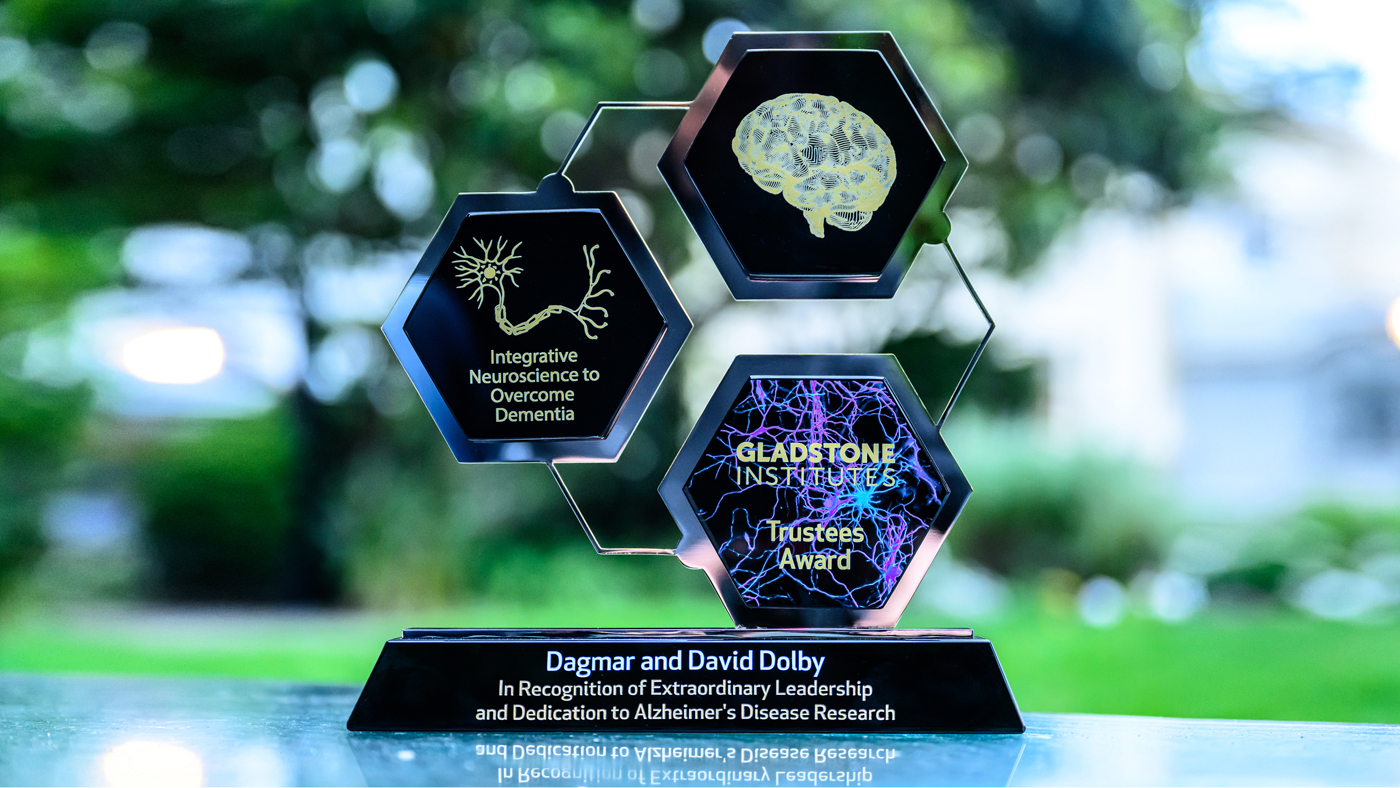
This year's Gladstone Trustees Award was presented to David and Dagmar Dolby for their ongoing commitment to supporting Alzheimer's disease research.
“There’s risk in everything, in every grant you make,” Dagmar reasons, and partnering with Gladstone investigators is helping her family pursue its mission to improve outcomes for people with Alzheimer’s disease.
Does she believe the investment will pay off?
“Oh, I absolutely believe that we will get to the bottom of this problem and that Alzheimer’s will be like other diseases that have been defeated with the right strategies,” she says. “Bit by bit, we’re getting closer.”
Support Discovery Science
Your gift to Gladstone will allow our researchers to pursue high-quality science, focus on disease, and train the next generation of scientific thought leaders.
Embracing Change: Darlene Hines Shares Her Journey of Growth, Resilience, and Giving Back
Embracing Change: Darlene Hines Shares Her Journey of Growth, Resilience, and Giving Back
Longtime Gladstone supporter Darlene Hines reflects on her journey of learning, growth, and giving after her husband’s passing
Donor StoriesVisionary Philanthropists Establish Center to Harness Computational Biology for Cancer Research
Visionary Philanthropists Establish Center to Harness Computational Biology for Cancer Research
A search for the brightest minds in cancer and AI led Hope and Sanjit Biswas to give in their own backyard.
Philanthropy Donor Stories Cancer Biswas Center for Transformative Computational Cancer Biology Data Science and Biotechnology Pollard Lab AI Big DataIncreasing Diversity in Postdoctoral Research
Increasing Diversity in Postdoctoral Research
Gladstone takes action to address lack of diversity in the STEM workforce through the Embark Program
Postdoctoral and Graduate Student Education and Research Development Affairs Donor Stories Graduate Students and Postdocs Diversity

